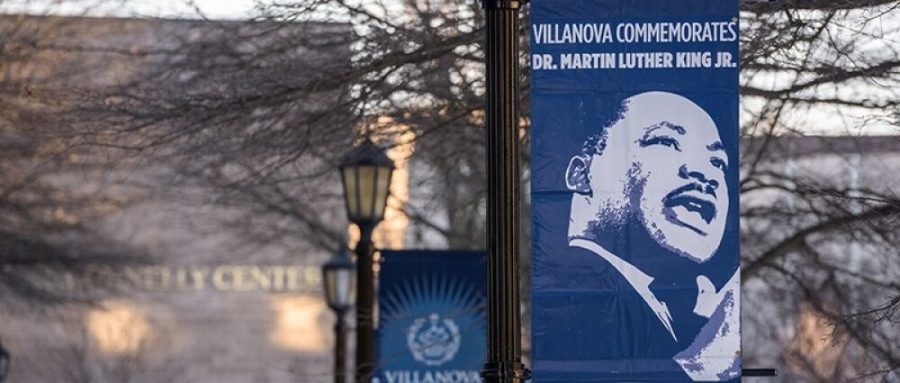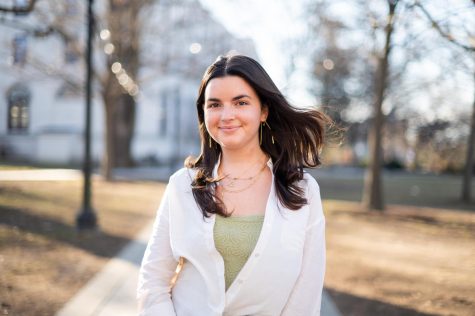2021 Freedom School Inspires University Community
Courtesy of Villanova University
The University celebrates the legacy of Martin Luther King Jr. during Freedom School.
February 10, 2021
On Feb. 4, members of the University’s student body, faculty and alumni network came together to participate virtually in the 2021 Freedom School. This is an annual day of conversation and education honoring the legacy of Dr. Martin Luther King, Jr.
The idea for Freedom School was originally conceived by Terry Nance, Ph.D, the University’s current Vice President for Diversity, Equity and Inclusion and Chief Diversity Office. In 1990, Nance saw an opportunity to amplify various social issues, especially racial justice, and spur action on campus and beyond. In the three decades since, the program has grown in size and scope but remains true to its core mission.
Kathryn Getek Soltis, Ph.D, has been the director of Freedom School for the past nine years.
“Freedom School’s goal is to deepen conversations about injustice, make them contemporary and allow expertise from Villanova’s campus to lead those discussions,” Soltis said.
In previous years, Freedom School has consisted of in-person sessions in the Connelly Center, creating an intimate atmosphere of learning and discussion. However, the program took on a virtual format this year with discussion and instruction facilitated via Zoom.
Participants had the option to choose from a diverse selection of four sessions according to their interests. Presentations varied in form; some took the structure of class lectures, while others were participation-based workshops or facilitated conversations. Several sessions included performances by undergraduate and graduate students.
Soltis acknowledged that the shift in format changed the dynamic of the sessions in some ways. However, student participation and the ease of Zoom ultimately preserved the tradition’s essence and even increased its accessibility for participants.
“We were worried about [the virtual format] affecting attendance, but we had over 600 attendees and usually have about 400-500,” she said. “We were thrilled to see how many students participated. I felt like the spirit of Freedom School still carried through.”
Sessions across all forms and subjects spurred audience reflection and participation. This was especially true in a session titled “PWLies: Performing Narratives about Life at a Primarily White Institution.” The student performance dove into the realities, frustrations, fears and challenges of students of color at the University.
Written and devised by an all-female cast of undergraduate students, “PWLies” effectively displayed prevalent feelings and concerns among communities of color on campus. It illustrated common examples of blatant racism and microaggressions. Following the provocative performance, members of the audience and cast engaged in a dynamic, open discussion about identity and diversity of experience at the same university.
Another session titled “Poetic Possibilities in Performing Difference” was composed of ethnographic and autoethnographic performances by graduate students Alicia Utecht, Cheyenne Zaremba and Sharese Salters. The Freedom School’s intimate, honest atmosphere was undeniably present as the audience and cast members discussed the effects and complexities of the concepts of self and other, as well as how to communicate and understand identity.
This was a theme throughout the sessions, which ranged widely in topic to suit a vast array of participants’ interests. There was a session centered around environmental justice and action, a discussion of the example of allyship in Stan Lee, and a dive into the history and legacy of Black socialism.
“The line-up this year reflects another level reached with honesty and vulnerability toward social justice in our community,” the director of the program said.
As it has for 30 years, the Freedom School resonated strongly with participants and presenters in 2021. Facilitated discussions encouraged deeper consideration of issues, perspectives and identities with the potential to spur action on campus.
“One thing I hope participants took away from Freedom School is how capable they are of being part of substantive conversations about justice, and are therefore responsible for taking these issues up themselves,” Soltis said. “These issues are not far from us, and they are not abstract.”



